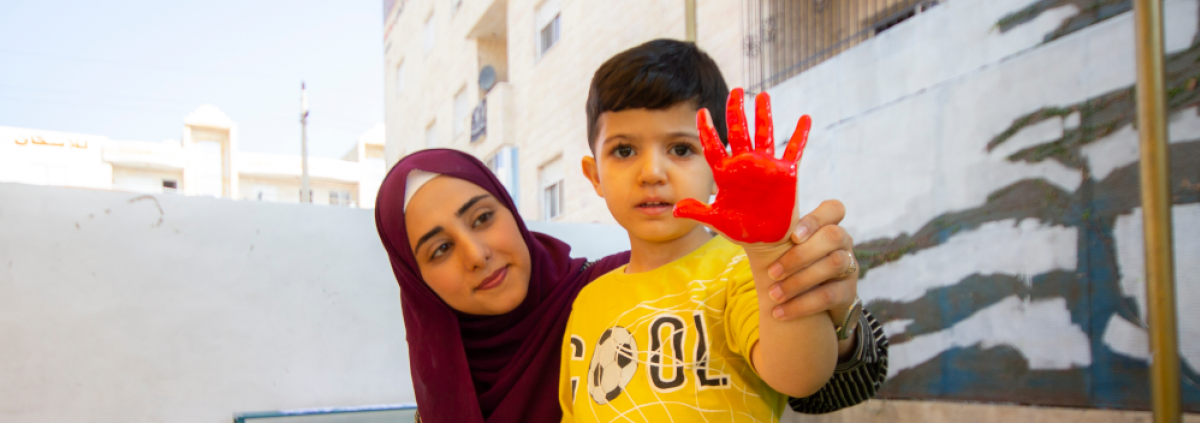The success of the school readiness programs in Iraq and Jordan can be attributed to the various learnings we have taken away from each step of the process in each country and associated shifts in process and approach.
Both programs are successful examples of best practice, embodying intrinsic commitments to partner ownership and collaborative design processes as well as promoting key components of ECD. The school readiness programs in both countries also kept sustainable practices and an understanding of what functions well to remain consistent across contexts and maintain the integrity of the Ahlan Simsim project goals and what can be appropriately adjusted to fit specific needs and contextualize outputs throughout each step.
At its core, the school readiness program places the priorities of children and their caregivers at the center of the approach and offers a holistic/encompassing set of resources for teachers and caregivers to use and prepare children at an early age with skills needed for healthy development in a cost-effective and sustainable way that will carry on past end of project. Based upon what we have learned while operating in Jordan and Iraq, we hope to promote key aspects of this program that aided in creating and expanding this example of best practices.
Recommendations for others include but are not limited to:
- Consider sustainability from the start.
- Design with scale in mind to further change beyond immediate intervention and cost.
- Emphasize the importance of and invest in relationships with key stakeholders for scale to be successful and cultivate champions who will advocate for the initiative or change from within.
- Be clear with concrete steps rather than advocate with abstract goals. Approach from within a system and build upon existing interventions or structures within that system.
- Identify needs with the partner; an intervention is only successful if it clearly represents how to best work in a given context.
- Remain in tune with these needs as they evolve and shift over time and link together national priorities with scaling aims for sustained uptake.
- Consider short term interventions and pilot programs to gain access to larger windows of opportunity with ministries.
While piloting the program in 2020 in Jordan, IRC bolstered the relationship with the ministry while meeting urgent pandemic needs through an adapted version of the school readiness programming delivered via phone calls that gave children tools through their caregivers.
Read more at: Building a Foundation in the Early Years: Supporting Children across the Middle East for Successful Entry into Primary School
